You, Me, and ADHD: How Dating Someone Else With ADHD Made Me More Sensitive Toward My Own Struggles—And More Aware of My Strengths
Who knew ADHD could be a third wheel?
“Babe? ...Babe! Have you seen the box cutter?” My boyfriend calls out the question from the other side of our Brooklyn apartment, frantically opening cabinets and drawers. I sigh, head to the kitchen, and guide him over to the island. Pulling out the top counter drawer next to the sink, I say, “Here it is; I started keeping it in here, remember?” He smiles, gives me a kiss, and thanks me.
The thing is, he doesn’t remember. He doesn’t remember our previous conversation, and he doesn’t remember that one day, months ago, during a frenzied cleaning spell, I had decided that the always-in-demand-yet-always-missing box cutter now belongs in the kitchen. My brilliant boyfriend does, however, remember the last time he used the tool. He can even recall the exact spot wherehe left it last: inside of a tool belt slung atop our foldable ladder in the office closet.
- Andrew Kahn, PsyD, clinical psychologist specializing in pediatric clients
- Natalie Jambazian, LMFT, licensed marriage and family therapist specializing in narcissistic abuse recovery and author of Detoxing from a Narcissist
My boyfriend and I moved in together six months ago, and we bothhave attention deficit hyperactivity disorder (ADHD), a neurodevelopmental chronic condition that can affect attention span, mood, memory, and productivity. But while he was diagnosed with the condition at a young age and has lived nearly his entire life knowing he is a neurodivergent person, my diagnosis came later in life, as is often the case for adult women with ADHD.
During a routine physical exam six years ago, at age 22—about a year into dating my boyfriend—I expressed my frustrations to my doctor about how difficult it was for me to pay attention in college and remember simple instructions at work. At the time, I was a water park manager and often had to balance pool chemicals and provide first aid to pool-goers; I couldn’t afford to forget even the smallest of steps.
A short quiz and a few probing questions later, my doctor presented me with my ADHD diagnosis, which explained why life seemed so much more difficult for me than it did for others.
Near immediately, my diagnosis provided some helpful clarity about why I operate the way I do—like why I chronically reply late to texts and get such poor sleep. But also, it opened up a completely new can of worms in regard to my relationship.
In the year prior to that exam, before my boyfriend and I moved in together and, thus, led separate lives, in separate apartments with separate schedules, small miscommunications and forgotten appointments (on both ends) seemed normal and inconsequential. But with my new diagnosis and a fresh understanding of our shared symptoms, I began to question whether a dual-ADHD partnership would be feasible long-term. Time proved it was indeed possible.
Once the COVID-19 pandemic began to wane in 2022, we decided to live together, prompting new questions about how we’d cohabitate. Navigating life alone with ADHD was already a battle; how would my ADHD boyfriend and I manage sharing a household?
Uncovering my natural gifts and virtues through dating someone else with ADHD
While ADHD can manifest in dramatically different ways in any two given people, there are some neurological commonalities that can make a dual-ADHD partnership challenging, says clinical psychologist Andrew Kahn, PsyD, who was also diagnosed with ADHD as an adult and is now the associate director of behavior change and expertise at Understood.org, a nonprofit that provides informational resources for neurodivergent folks and people with learning disabilities. “For example, difficulties with forgetfulness, and keeping track of day-to-day things, like appointments, dates, and paying bills [tend to occur].” And in a partnership where both people are managing these struggles, it can be doubly difficult to surmount them, he adds.
That’s certainly been true in my relationship, especially since moving in with my boyfriend. While we split the household duties evenly, sometimes we get sidetracked during chores, our fickle attention spans pulling us away from the laundry and toward the television. Even though we hung up two shared monthly calendars in separate areas of our home, we still forget important dates and appointments. Sometimes those lapses are pretty inconsequential, like missing a dinner reservation; other times, they’ve been figuratively or literally costly, like forgetting a parking ticket due-by date. Our shared struggles with sleep and proclivity to stay up late make sticking to a sleep schedule difficult. And, unlike in the quickly solved case of the box cutter, locating a simple household item can require a level of detective work that could rival that of Sherlock Holmes.
Despite these challenges, our home is also undeniably filled with love and magic. Our eclectic tastes have married nicely, and our apartment walls are covered with a mishmash of beautiful posters and vinyls we’ve accumulated over the seven years we’ve been together. Our similar thought patterns make our conversations particularly animated and exciting; in our shared home, away from the rest of the world, we’re free to fire off ideas without worrying about interrupting strangers or feeling shameful about our (admittedly loud AF) outdoor voices.
Perhaps most poignantly, however, dating someone else with ADHD has pushed me to be gentler toward myself. Like my boyfriend, I sometimes forget things, missing an appointment here or leaving a text unread for days there. But recognizing these behaviors in both of us has allowed me to give myself grace. These things don’t disprove or discredit our brilliance; rather, they’re small facets of our full and multifaceted selves.
My boyfriend is clever, resilient, hilarious, kind, and curious—not in spite of his ADHD mind, but because of it. And if that’s true for him, well… maybe it’s true for me, too. While I, like my boyfriend, have been known to struggle with seeing a task through to completion, I can also now recognize the passion and excitement we both have for new experiences. And yes, my ADHD makes me a hypersensitive person who cries at every SPCA commercial, but also, this capacity for emotion helps me connect and empathize with my loved ones—including my boyfriend.
“Folks with ADHD can be so passionate,” says Dr. Kahn. “They can be so creative, and they can create intrigue, and interest, and use that creativity to make their relationships really rich and really deep.” I can say with certainty so much has been true of my own relationship. “It’s exciting and great to have a car that can go that fast—if you learn how to control it together,” Dr. Kahn adds.
Learning to work through the challenges of managing a dual-ADHD partnership
In a dual-partnered relationship where both people have ADHD, “your partner is a mirror to you,” says psychotherapist Natalie Jambazian, LMFT. Though there are certainly positives to that sentiment, the potential difficulties tend to surround issues of time management and forgetfulness, she says.
That’s why proactivity and problem-solving are even more crucial for adults with ADHD who begin dating someone else with ADHD, says Jambazian. “It’s important for both partners to be on the same page, and talk about tasks related to chores, finances, and what that looks like for each partner.” These safeguards can keep folks with ADHD on track with work and home tasks, opening up space for the creativity and passion of an ADHD mind, she says.
“Doing it together means that you're [both] agreeing to do this, you're sharing the commitment, and you're sharing the responsibility of making those kinds of changes
One way that two cohabitating ADHD partners can support each other in managing life admin is by creating shared systems, says Dr. Kahn. That means deciding together on a schedule for chores, on a process for remembering dates, on where to keep things, and so forth. This is why my drawer solution for the box cutter was never going to work; my boyfriend and I never decided together on the best place to store it; I had made the decision on my own.
“Doing it together means that you're [both] agreeing to do this, you're sharing the commitment, and you're sharing the responsibility of making those kinds of changes,” says Dr. Kahn. “For a partner with ADHD, there's a lot of monologues, there's a lot of chaos, and there's a lot of confusion—and a lot of that can be settled down by creating shared rituals.”
Dr. Kahn notes that it can be helpful for both ADHD partners to recognize the areas where they especially struggle, and to build shared rituals around them. For my boyfriend and me, locating essential items has been a particular pain point, which is why Dr. Kahn suggests we work together to find a primary place for our keys, wallets, phones, and the like. “Just consider how much that could spare you in terms of chaos and time spent looking for them,” he says. “Simple things like that can become contagious when you notice that they work.”
As I write this, our shared box cutter still occasionally floats around our home. Sometimes it’ll appear in the drawer next to the sink, sometimes it’ll show up under the couch. We have yet to find a permanent spot for it, but in the meantime, I’ll be putting it safely back in the tool belt after I use it—the same spot where I know my boyfriend will remember having left it.
Citations
Well+Good articles reference scientific, reliable, recent, robust studies to back up the information we share. You can trust us along your wellness journey.
- Shaw, Philip et al. “Emotion dysregulation in attention deficit hyperactivity disorder.” The American journal of psychiatry vol. 171,3 (2014): 276-93. doi:10.1176/appi.ajp.2013.13070966

